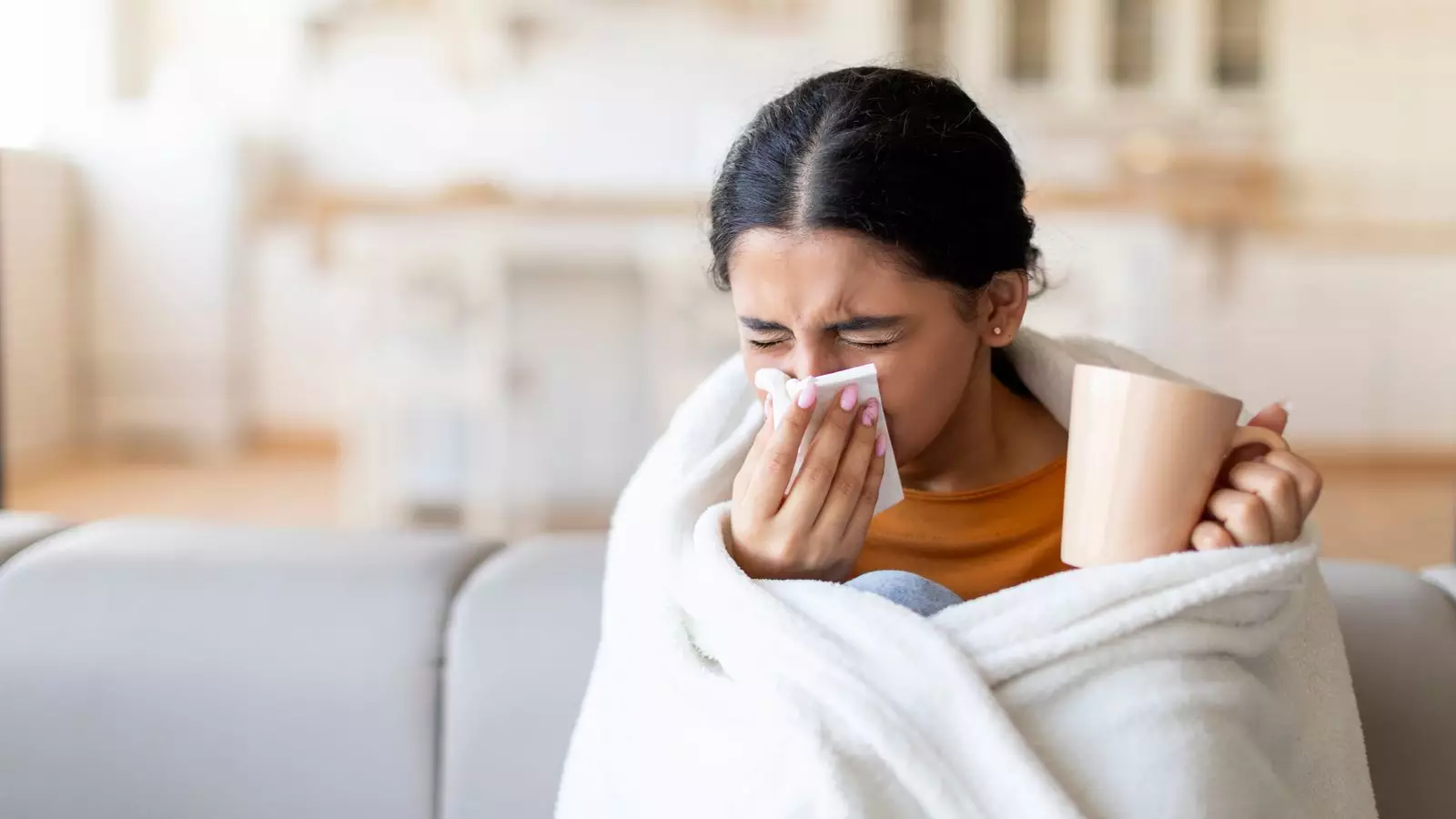The latest reports from England indicate an alarming surge in flu infections, which has resulted in a 70% increase in hospitalizations over just one week. With an average of 1,861 patients suffering from the flu being admitted daily, the healthcare system is under significant strain. Such dramatic spikes in illness are particularly concerning given that this year’s figures are starkly contrasted with those from the same week last year, which saw only 402 average daily cases. This unprecedented rise emphasizes the urgency for timely interventions and vaccinations.
The demographics of flu cases present a crucial area of concern. The highest incidences are currently recorded among children aged 5 to 14 years, as reported by the UK Health Security Agency. However, as the holiday season approaches, there is a forecast for an uptick in cases among adults as schools and nurseries close for the winter break. This trend highlights a pressing need for effective communication and education on preventative measures for families and communities, particularly as they gather indoors during the festive season.
Compounding the flu crisis, there is a rising concern regarding the simultaneous prevalence of other viral infections, including norovirus and Respiratory Syncytial Virus (RSV). NHS England reported that an average of 837 hospital beds were occupied by norovirus-related symptoms, marking a 10% increase from the previous week and a staggering 64% increase compared to last year. Additionally, the number of children hospitalized due to RSV has risen, creating a multi-faceted health crisis that has stoked fears of what medical professionals are calling a “quad-demic”.
This term describes the simultaneous peaks of several viral illnesses that typically circulate during the winter months, intensifying when individuals congregate indoors. The interaction of these viruses can elevate the risks and complications associated with each infection. The potential for patients to contract multiple illnesses simultaneously raises an urgent public health concern that demands a coordinated response from healthcare professionals.
The Importance of Vaccination
In light of rising infection rates, healthcare officials are intensifying calls for vaccination against influenza, COVID-19, and RSV. The NHS offers free flu vaccines to at-risk populations, including individuals over 65, pregnant women, and those with certain health conditions. Vaccination points have been strategically established in high-traffic areas, such as supermarkets and Christmas markets, to increase accessibility.
Public health experts, including Professor Sir Stephen Powis, have highlighted the critical window of opportunity for individuals to secure their vaccinations before the peak season of illness. Health Secretary Wes Streeting similarly underscored the necessity for community members to protect themselves and their families, urging prompt action.
The emphasis on vaccination not only aims to curb the spread of flu and other viral infections but also seeks to alleviate the pressure on an already burdened healthcare system. Targeted outreach and education campaigns could be instrumental in fostering a culture of proactive health management as communities face the impending winter season.
Beyond the spike in viral infections, the NHS is grappling with additional challenges, including record-high emergency department visits. The significant increase in A&E attendances—2.31 million in November alone—further strains healthcare resources, as evidenced by the decline in adherence to the four-hour treatment target. This situation raises pertinent questions about the long-term sustainability of healthcare services in the face of relentless demand.
Moreover, ambulance services are struggling with handover delays, averaging nearly 43 minutes, highlighting potential inefficiencies in system coordination. With 16.3% of patient transfers delayed for over an hour, the overall patient experience and care continuity are jeopardized, raising the risk of poorer health outcomes.
The confluence of rising respiratory illnesses, coupled with the ongoing challenges faced by the NHS, paints a stark picture for public health this winter. As health authorities issue warnings and mobilize for the months ahead, it falls upon individuals to actively engage in preventative measures such as vaccination and maintaining vigilance in personal health practices. The collective response to this health crisis will undoubtedly shape the wellbeing of communities and the resilience of healthcare services in the future. Efforts to promote awareness, accessibility to vaccinations, and improved healthcare delivery systems are crucial steps toward navigating this turbulent winter health landscape.


Leave a Reply